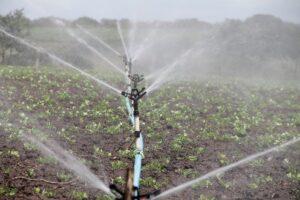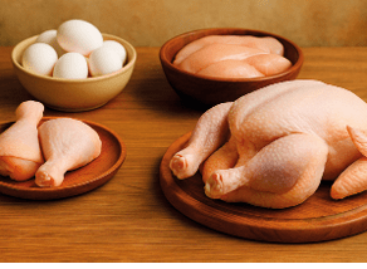This year, you do not have to pay an agricultural water service fee for irrigation
Climate extremes, the difficult economic situation caused by the war raging in our neighbor, and the unprecedented rise in energy and input prices pose significant challenges to agriculture. The historic water shortage in 2022 caused the biggest drought damage of the last 100 years, amounting to HUF 1,000 billion. With the drastic increase in energy prices, water service fees would have increased to such an extent this year that it would have been almost impossible to provide water for the 100,000 hectares currently irrigated. Therefore, the government decided that this year the state will fully take over the payment of the agricultural water service fee from the producers.

(Photo: Pixabay)
Agricultural water charges are determined by the maintenance cost of a given system, and this depends to a significant extent on whether gravity or pump and lift systems are in operation. Due to the significant energy demand of the latter, the water fees paid by producers are very different. In view of this, the National Chamber of Agrarian Economy (NAK) and the Association of Hungarian Farmers’ Associations and Farmers’ Cooperatives (MAGOSZ) have been lobbying for a long time to ensure that producers have access to water as a production input at a fair and predictable price. With this, they also want to help ensure the water supply of irrigated areas and the development of irrigation so that our country complies with EU directives.
The agricultural water service fee is made up of two parts: on the one hand, the fixed fee ensuring the availability of water (e.g. maintenance work related to the system, fuel, wage and material costs, statutory obligations, costs of tests), and on the other hand, the variable fee (e.g. the pump operating cost).
In 2014, the state once fully assumed the payment of the agricultural water service fee, but it had to be reduced according to the European Commission’s decision in 2016. Because the Commission obliges the member states to enforce the principle of cost recovery and to maintain an effective water price policy, and it ties the payment of EU subsidies to these. At the suggestion of NAK and MAGOSZ, however, it was achieved that the agricultural water service fee is gradually reduced, and that our country applies the principle of partial, rather than full, return. According to this, from 2021, agricultural water users and producers will pay 100% of the variable fee, but only 50% of the permanent fee, the other half of which has been assumed by the state in the long term.
At the beginning of this year, the water sector – fulfilling its legal obligations – prepared the cost and fee calculation for the agricultural water service for the year 2023
Due to high energy prices, the cost of agricultural water services was estimated at more than HUF 10 billion. Based on the calculation, there was a significant deficit in the state support, and the water service fees to be paid by the producers also increased drastically, in some cases they increased tenfold. Given the historic drought that hit our country and most of Europe last year, the difficult economic situation caused by the war raging in our neighbor, and the unprecedented rise in energy and input prices, the government decided that, in support of the fight against climate change, this year – the in order to preserve the competitiveness of producers – provides irrigation water free of charge through state-owned water facilities. It is important to note that the fee exemption only applies to those producers who irrigate their agricultural land from surface water in the framework of a water rights operating permit, notification, or extraordinary water use for irrigation purposes.
NAK
Related news
EU poultry meat rules are changing: the 12-week limit for “free-range” labeling is being relaxed during a pandemic
🎧 Hallgasd a cikket: Lejátszás Szünet Folytatás Leállítás Nyelv: Auto…
Read more >Not a turnaround, but consolidation: an agricultural outlook for 2026
🎧 Hallgasd a cikket: Lejátszás Szünet Folytatás Leállítás Nyelv: Auto…
Read more >Related news
(HU) Átadták a SIRHA Budapest 2026 Innovációs Termékverseny díjait
🎧 Hallgasd a cikket: Lejátszás Szünet Folytatás Leállítás Nyelv: Auto…
Read more >HELL CITY has arrived, led by Michele Morrone
🎧 Hallgasd a cikket: Lejátszás Szünet Folytatás Leállítás Nyelv: Auto…
Read more >









